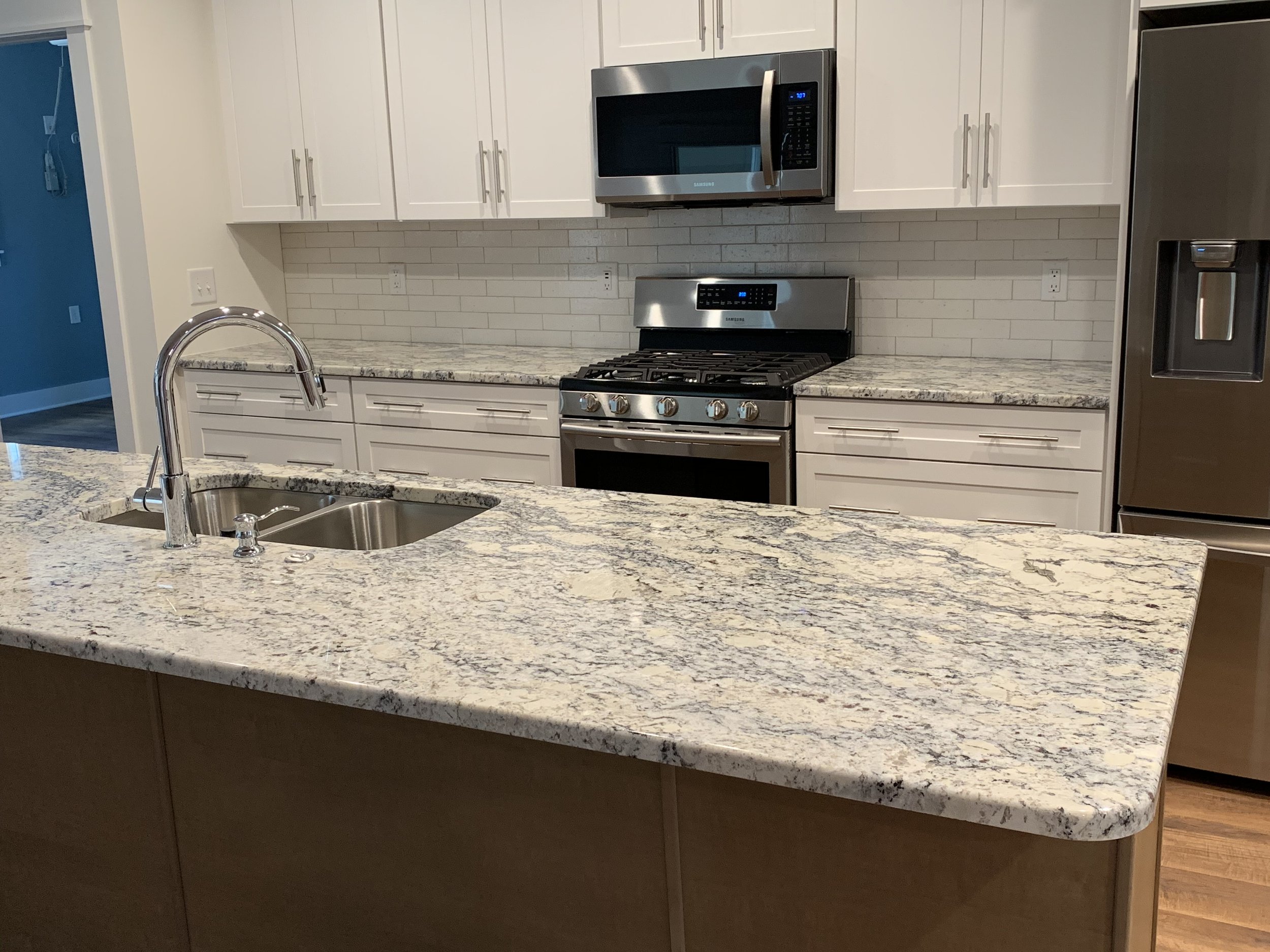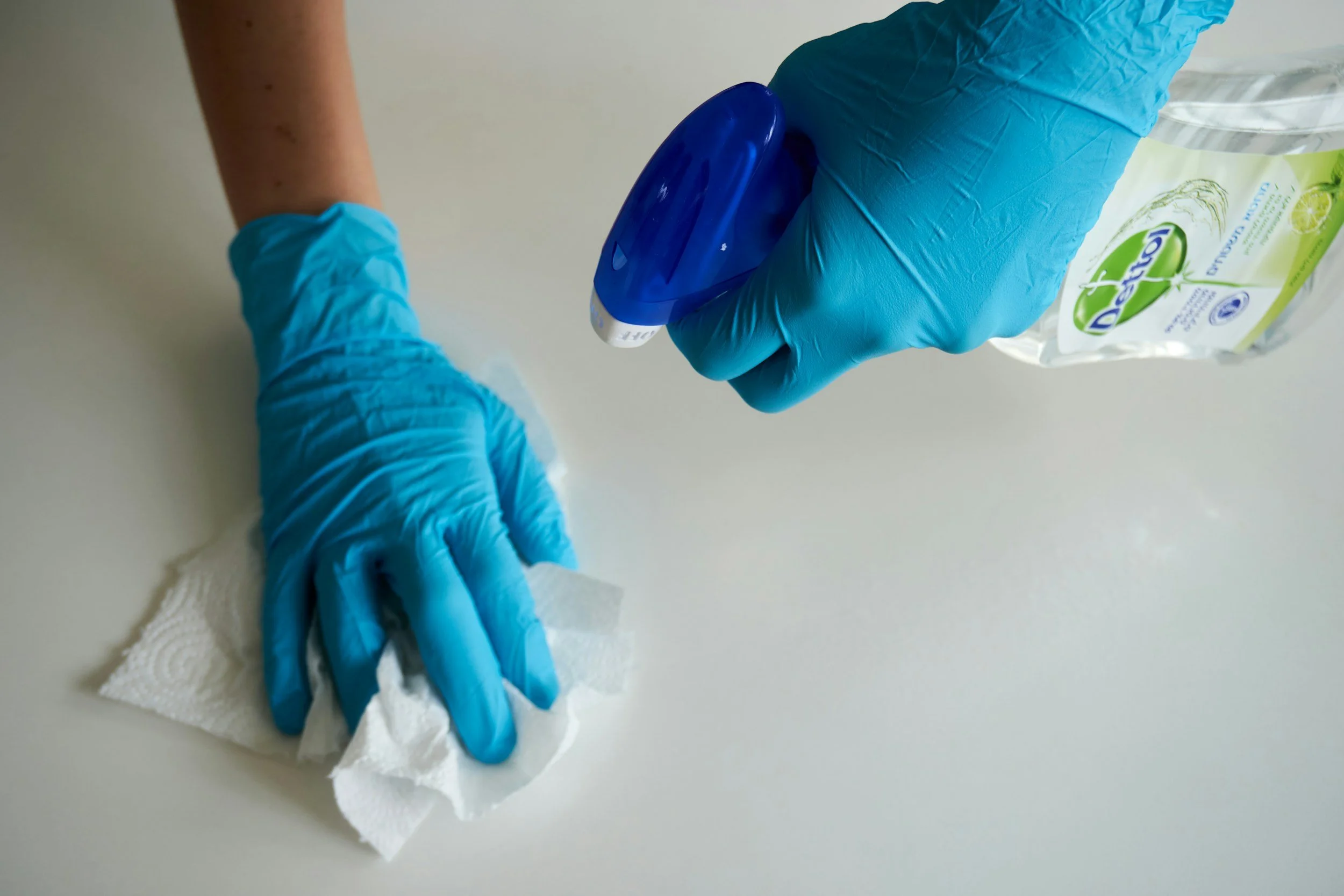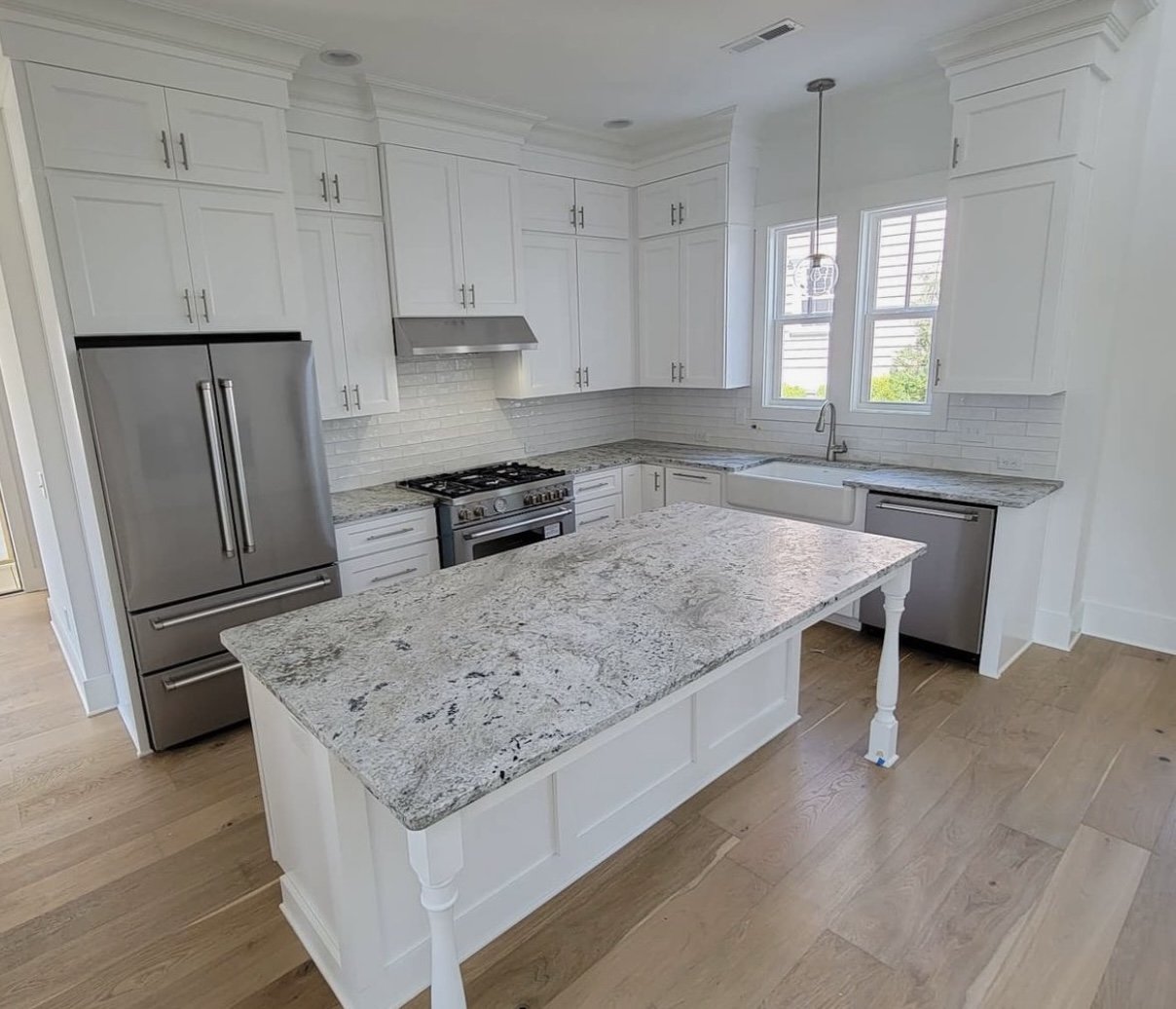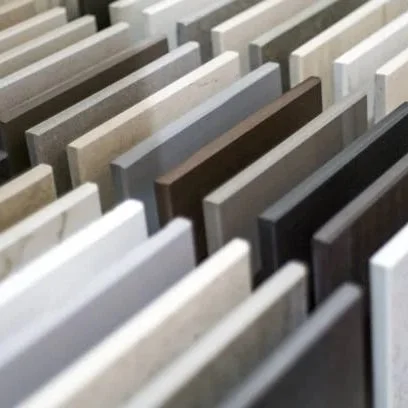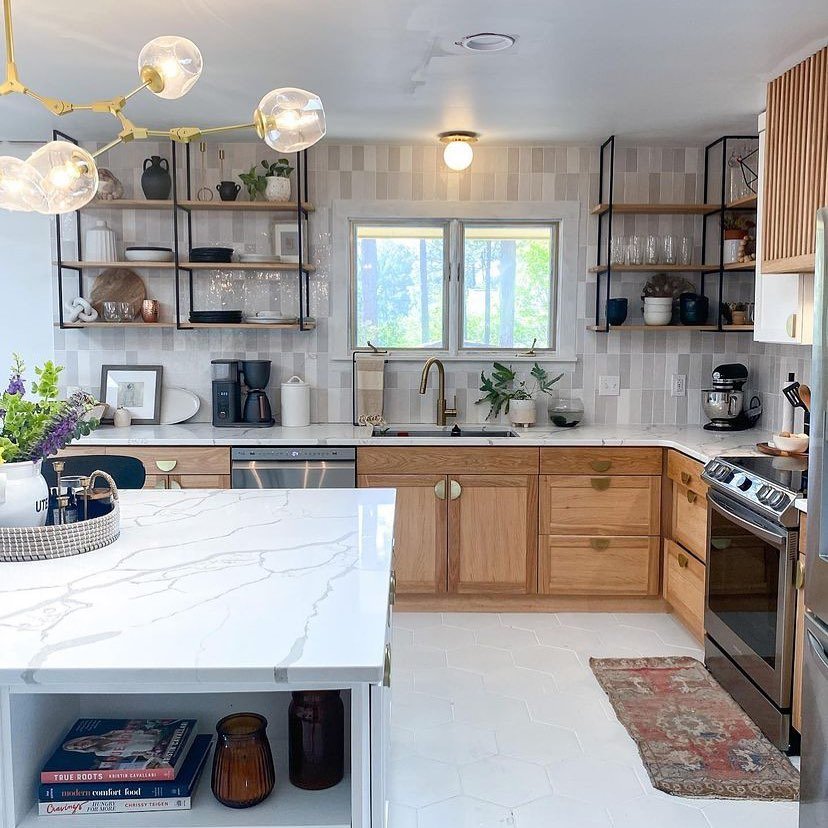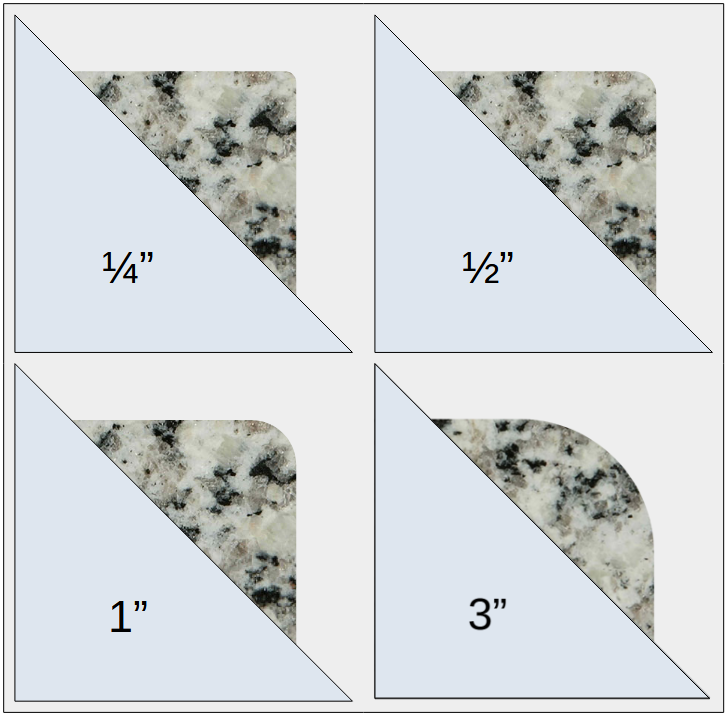Selection & Design
Your Selections: Customizing the Details of Your Countertops
Polished, Leathered, and Honed Finishes: What’s the Difference?
Process and Timeline
Care & Maintenance
Care and Maintenance: Quartz vs. Granite vs. Marble Countertops
The Truth About Sealers: Should You Seal Your Natural Stone Countertops?
Natural Stone Care: Cleaning, Stain Removal & Maintenance for Granite, Marble, and More
Payments & Policies
Downloads
The Essential Quartz Countertop Care Guide
Quartz countertops are a perfect blend of modern style and everyday resilience. But like any high-quality surface, they’ll last longer and look better with the right care.
How to Keep Your Surfaces Clean, Safe, and Looking Their Best
Quartz countertops are a perfect blend of modern style and everyday resilience. Their non-porous structure and natural resistance to stains make them a go-to option for busy kitchens and bathrooms. But like any high-quality surface, they’ll last longer and look better with the right care.
At World Stone, we want to help you protect your investment—here’s everything you need to know.
1. Simple Cleaning Is Best
Maintaining quartz doesn’t require expensive products or complicated routines. In fact, less is more.
What to use:
A soft cloth or sponge
Warm water
A mild, non-abrasive household cleaner (without bleach or high pH)
What to skip:
Scouring powders
Steel wool or rough scrub pads
Bleach-based or alkaline-heavy products
Even though quartz is non-porous, leftover residues can create dull spots over time—rinse and dry well after cleaning.
2. Handle Spills Swiftly
Although quartz resists most staining, some pigmented or acidic substances (like curry, wine, or tomato sauce) can discolor the surface if left too long.
If a spill happens:
Wipe it up quickly with warm soapy water
For stubborn messes like dried paint or gum, gently lift the residue using a plastic scraper, then clean the area as usual
Avoid abrasive scrubbers or metal tools—they may leave dull marks or fine scratches.
3. Don’t Push Its Heat Limits
Quartz performs well under daily use, but it’s not built for direct high-heat contact. Sudden changes in temperature can stress the material, sometimes causing cracks or discoloration.
Best practice:
Always use trivets or heat pads under hot pans, slow cookers, or any heat-emitting appliance. Never set anything straight from the oven onto the countertop.
4. Keep Sharp Objects in Check
Though quartz is tough, it’s not immune to damage from sharp or heavy items.
To keep your surfaces flawless:
Always use a cutting board (even for small tasks)
Refrain from dragging pots, metal utensils, or appliances across the surface
Be mindful when handling heavy cookware or tools near edges and corners
5. Know Which Chemicals to Avoid
Certain cleaning agents and solvents can react with quartz resin binders and damage the finish.
Steer clear of:
Paint removers or nail polish remover with acetone
Oven cleaners, drain cleaners, and lye-based products
Permanent markers, ink, and furniture polish
If an accident happens, rinse the surface with clean water immediately and wipe dry.
Final Thoughts
Quartz offers a great return on investment: durable, stylish, and easy to care for. With a little daily attention and some smart habits, your surfaces will maintain their polished look for years to come.
Have questions about quartz or other surface materials? We’re here to help—reach out to the team at World Stone any time!
The Truth About Sealers: Should You Seal Your Natural Stone Countertops?
Sealing natural stone isn’t always necessary, but in many cases, it’s a smart move.
Natural stone countertops—like granite, marble, and quartzite—are known for their timeless beauty and durability. But should they be sealed? At World Stone, we follow the expert guidance of the Natural Stone Institute, and here’s what you should know.
Why Seal at All?
Sealing natural stone isn’t always necessary, but in many cases, it’s a smart move. Some stones are more porous than others, meaning they absorb liquids and are more susceptible to stains. A proper sealant adds a layer of defense without compromising the look or feel of the stone.
The Two Types of Sealants
1. Topical Sealers
What they do:
These sealers form a protective film over the surface of the stone. They’re usually made from wax, acrylic, or other plastics and work well at resisting surface moisture and some staining agents.
Pros:
Quick and easy surface protection
Can add shine (in some finishes)
Cons:
Require frequent reapplication due to wear
Can change the appearance of honed or matte stones
Not ideal for most residential countertop applications
When to avoid:
Topical sealers are not recommended for honed or textured finishes. They can add an unwanted gloss and alter the stone’s intended aesthetic.
2. Impregnating (Penetrating) Sealers
What they do:
These sealers soak into the stone and bond below the surface. They don’t alter the finish but offer long-term resistance to staining by repelling liquids from within.
Types:
Water-based: Easy to apply, low odor
Solvent-based: Deeper protection and longer-lasting effects
Pros:
Won’t affect the natural appearance of the stone
Long-lasting protection
Suitable for kitchen and bath surfaces
Cons:
Slightly more complex application
Some solvent-based sealers may require proper ventilation during use
At World Stone, we apply a professional-grade solvent-based impregnating sealer to all qualifying surfaces during installation. This ensures the stone starts off with a layer of protection that can extend its life and keep it looking great.
How Often Should You Reseal?
There’s no universal answer. Depending on your stone type, usage, and sealant product, reapplication may be needed every 1–5 years.
A simple test:
Place a few drops of water on the countertop. If the stone darkens within 5 minutes, it’s time to reseal.
Choosing the Right Sealer
We don’t recommend a specific brand, but we do strongly advise that you:
Choose a sealer compatible with your specific stone
Ensure the product is non-toxic and food-safe if used in the kitchen
Follow the manufacturer’s instructions carefully for best results
Avoid mixing chemical products (e.g., bleach and ammonia)
Final Thought
Sealing doesn’t make your countertops indestructible—but it does make them more resilient. When paired with regular care and smart cleaning habits, sealing helps your stone stay beautiful and functional for years to come.
Have questions about sealing or maintaining your natural stone countertops? Contact World Stone today—we’re here to help.
Natural Stone Care: Cleaning, Stain Removal & Maintenance for Granite, Marble, and More
Natural stone countertops offer unmatched beauty and long-lasting performance—but they do require proper care to preserve their appearance.
Natural stone countertops offer unmatched beauty and long-lasting performance—but they do require proper care to preserve their appearance. Whether you're dealing with a daily mess or an unexpected stain, this guide will walk you through the best practices for keeping your stone surfaces in top shape.
Routine Cleaning
Gentle Is Best
For day-to-day care, stick to simple and safe methods:
Wipe down with a neutral pH stone cleaner or mild dish soap mixed with warm water.
Use a soft cloth for countertops and a clean mop for floors—abrasive pads can scratch the surface.
Avoid overusing soap, which can leave behind a hazy film. Rinse thoroughly and dry with a soft towel.
In damp areas like showers or bathrooms, run a squeegee after each use to reduce soap scum buildup.
For outdoor stone (e.g., patios or pool areas), rinse with clear water and spot-clean with a diluted bleach solution to remove algae or moss buildup.
Cleaning Products to Avoid
Natural stone is sensitive to certain chemicals and cleaning habits. Keep these tips in mind:
Avoid acidic cleaners like vinegar, lemon juice, or toilet bowl cleaners—they can etch marble and other calcareous stones.
Steer clear of scouring powders or abrasive creams, which can scratch polished surfaces.
Never use rust removers that contain hydrofluoric acid (HF)—this harsh chemical attacks even the strongest stones like granite.
Don’t mix bleach and ammonia. Doing so creates a toxic gas that's harmful to breathe.
If you're ever in doubt, ask your stone supplier to recommend safe cleaning products.
Sealing: An Extra Layer of Protection
Some natural stones benefit from sealing to help resist stains. These sealers—more accurately called impregnators—soak into the stone and create a moisture barrier.
Sealing doesn't make stone stain-proof, but it does buy you time to wipe up spills before they soak in.
Use only non-toxic sealers in food prep areas.
Always follow your supplier's guidance on how often to reseal, which may vary based on stone type and usage.
Identifying & Removing Stains
Before treating a stain, take a moment to investigate:
Where is it located? Is it near a plant, food prep area, bathroom, or makeup station?
What color is it? Different types of stains leave different marks.
What shape or pattern does it have? Rust or metal stains often match the shape of the item that caused them.
What’s nearby? Think about what activities or items are usually around the stained spot.
Once you’ve identified the likely source, use these targeted solutions:
Common Stone Stains & Treatments
Oil-Based Stains
Examples: grease, cosmetics, cooking oils, putty
Appear as dark patches.
Clean gently with mineral spirits, acetone, or a liquid detergent to lift the residue from the stone.
Organic Stains
Examples: coffee, tea, wine, fruit, food spills, paper, leaves
May leave pinkish-brown discoloration.
Indoors: Clean with 12% hydrogen peroxide and a few drops of ammonia.
Outdoors: Sun and rain often help fade organic stains over time.
Metal Stains
Examples: rust from cans, screws, nails, furniture
Rust appears orange to brown; copper turns green or muddy brown.
Remove with a poultice—for deep rust stains, professional treatment may be needed.
Biological Stains
Examples: mildew, algae, moss, lichens
Mix ½ cup bleach, ammonia, or hydrogen peroxide in a gallon of water.
Do not mix bleach and ammonia together.
Ink Stains
Examples: markers, pens
On light stone, use hydrogen peroxide or bleach.
On dark stone, try acetone or lacquer thinner.
Paint Stains
Small spots can be scraped carefully with a razor or cleaned with lacquer thinner.
For thick or dried paint, use a commercial paint stripper—but avoid acids and flame tools.
Protect yourself with gloves and eye protection, and use only wood or plastic tools to scrape residue.
Hard Water Spots & Rings
Usually surface-level and caused by mineral deposits.
Buff gently with 0000-grade (super fine) steel wool.
Smoke & Fire Residue
Fireplaces or smoke-stained areas may need a specialized smoke remover.
Acidic residue from smoke can also dull the surface, requiring professional refinishing.
Etching
Caused by acidic contact, even from things like juice or wine.
Etching dulls the finish and may or may not leave a visible stain.
Light etching can sometimes be polished out; deeper etching should be addressed by a stone restoration expert.
Scratches & Surface Dullness
Light scratches can be improved with dry 0000 steel wool.
Deeper gouges or chips require professional refinishing.
Final Thoughts
Natural stone countertops are a premium investment, and with the right care, they’ll reward you with decades of style and performance. Stick to gentle daily cleaning, avoid harsh chemicals, and learn how to respond to stains early. When needed, don’t hesitate to call in a stone care pro—some fixes are best left to the experts.
Payment Policies for Commercial and Residential Builder Accounts
Our payment policies are designed to keep your projects running smoothly while maintaining the high quality and precision you expect from us.
Everything You Need to Know About Paying for Your Projects
At World Stone, we understand that builder and commercial projects often have unique needs and schedules. Our payment policies are designed to keep your projects running smoothly while maintaining the high quality and precision you expect from us.
What’s Included in Our Pricing
When you partner with World Stone, you receive comprehensive turnkey service covering every step, including:
Field Measurement: Our skilled technicians perform precise, laser-accurate site measurements to ensure your countertops fit perfectly. This initial measurement is included in your project cost at no extra charge.
Fabrication: Your countertops are custom fabricated in our advanced facility, utilizing CNC machinery and expert craftsmanship to guarantee flawless results.
Installation: Experienced installers carefully fit and finish your countertops on site, ensuring a seamless, professional installation.
Warranty: We back our workmanship and materials with a one-year warranty, offering peace of mind well beyond project completion.
Deposit and Payment Terms
For projects under $10,000, a 100% deposit is required before work begins.
For projects over $10,000, a 50% deposit is required upfront, with the remaining balance due before installation.
For residential builder accounts, we offer Net 30 terms once your account is established.
New builder accounts must pay 100% upfront for their first two projects before qualifying for Net 30 terms.
We accept checks as payment.
We do not accept credit cards, debit cards, or cash.
Change Orders
A change order refers to any change in the original scope of work, including:
Material selection changes
Labor adjustments
Timeline changes, such as expedited or delayed installation
Since countertops are custom fabricated according to your specifications, even minor changes may require remeasuring, redesigning, or reprogramming equipment, possibly leading to additional costs or schedule changes.
All change orders must be approved in writing and may affect pricing and production schedules.
Please note:
Additional site visits beyond the original measurement and installation will incur a $150 trip fee per visit.
Projects outside of our regular service areas and work requested outside of regular business hours may also be subject to additional charges.
Account Holds and Payment Enforcement
Timely payment is essential to keep your projects on track. Accounts with overdue balances will be placed on hold, and no further work—including measurement, fabrication, or installation—will proceed until payments are current.
Refund Policy
Because every project is custom made:
Deposits are non-refundable once fabrication begins.
If a project is canceled before fabrication, a refund may be issued minus restocking or administrative fees.
Stock vs. Special Order Material Pricing
We maintain an extensive inventory of over 2,500 block slabs in stock, allowing us to offer competitive pricing and quicker turnaround times on stock material.
When your project requires special ordered material—such as high-end slabs, specialty finishes, or specialty colors—the pricing may differ to account for supplier costs, extended lead times, and handling requirements.
Questions?
We are here to support your project from start to finish. For questions about invoicing, payment terms, or project details, please contact your project manager or our office team anytime.
Payment Policies for Retail Customers
Because each countertop is custom-made to your space and specifications, we have a few important payment policies to ensure your project runs smoothly.
Everything You Need to Know About Paying for Your Countertops
At World Stone, we aim to make the process simple and transparent for homeowners and retail customers. Because each countertop is custom-made to your space and specifications, we have a few important payment policies to ensure your project runs smoothly.
What’s Included in Our Pricing
When you choose World Stone, you’re getting a full-service experience. Our pricing covers everything you need from start to finish, including:
Field Measurement: We perform a precise, laser-accurate measurement of your space to ensure your countertops fit perfectly. This initial measure is included with your project at no extra cost.
Fabrication: Your countertops are custom fabricated in our state-of-the-art facility using advanced CNC machinery and skilled craftsmanship to deliver flawless results.
Installation: Our experienced installation team carefully installs your countertops with attention to detail, ensuring a seamless fit and finish.
Warranty: We stand behind our work with a one-year warranty covering workmanship and materials, giving you peace of mind long after installation.
100% Deposit Required Before Measurement
Unlike off-the-shelf products, your countertops are custom-built to your exact specifications, from layout to material to edge profile. Once we begin measuring and fabricating, we are committing labor, equipment time, and raw materials specifically to your order. A 100% deposit before field measurement is necessary because:
It reserves your material —many pieces are one-of-a-kind, limited in quantity, or special ordered from a supplier.
It confirms your project timeline and secures your spot in our production schedule.
It covers up-front costs like digital templating, CAD programming, and early-stage fabrication.
It helps us avoid delays caused by non-payment at later stages.
In short, the deposit allows us to move forward with full confidence—knowing the project is funded and approved—so we can deliver your countertops on time and at the highest quality.
Accepted Payment Methods
Checks are our only accepted form of payment.
No credit cards, debit cards, or cash are accepted at this time.
Change Orders
A change order is any change in the original scope of work agreed upon at the start of your project. This includes adjustments to the material, labor, or timeline—all of which can impact your final cost and scheduling. Because each countertop is custom fabricated to your specifications, even small changes can require remeasuring, redesigning, and reprogramming machinery—often with material waste or added labor.
Here are some common examples of change orders:
Switching to a different stone or finish after the original selection
Adding or removing elements like backsplashes, mitered edges, or waterfall panels
Altering the layout after templating
Requesting an accelerated timeline or delayed installation
All change orders must be approved in writing and may result in revised pricing and/or a shift in the production schedule.
Please note:
Any additional trips beyond the original measurement and installation visits will incur a $150 trip fee per visit. Projects outside of our regular service areas and work requested outside of regular business hours may also be subject to additional charges.
Refund Policy
Because all our work is made-to-order:
Deposits are non-refundable once fabrication has begun.
If a project is canceled prior to fabrication, your deposit may be refunded minus any restocking or administrative fees.
Questions?
Our team is here to help at every step. If you have questions about your estimate, material choices, or payment, don’t hesitate to reach out.
Do You Need Countertop Supports?
When it comes to extended countertop overhangs—like those on islands, peninsulas, or bar tops—proper support is key to both safety and long-term durability.
When it comes to extended countertop overhangs—like those on islands, peninsulas, or bar tops—proper support is key to both safety and long-term durability. At World Stone, we help customers determine when and where supports are needed and offer stylish, functional solutions to get the job done right.
When Are Supports Needed?
Overhangs up to 10 inches:
Supports are strongly recommended, especially with heavier materials like granite or quartz. While it may appear stable, unsupported weight over time can lead to cracks, sagging, or cabinet stress.Overhangs over 12 inches:
Supports are required. At this length, the stone cannot safely support its own weight and must be reinforced with brackets or corbels to meet both safety standards and manufacturer guidelines.
Support Options We Offer
Wooden Corbels
Corbels offer both support and style. Available in various shapes and finishes, wooden corbels are ideal for traditional or farmhouse-style spaces. They add a decorative touch while giving your countertop the strength it needs.
Metal Brackets
World Stone offers custom-made metal support brackets for a clean, modern look. They are engineered for strength without drawing attention—especially useful when you want the stone to be the star. These low-profile supports are perfect for:
Kitchen islands
Floating bar tops
Wall-mounted countertops or desks
Open shelving or floating shelves
How many supports do you need?
Countertop brackets are generally spaced 18 - 24 inches apart
Bracket spacing starts 4 - 6 inches away from each end
Let’s Keep Your Counters Safe and Stunning
Proper support isn’t just about code compliance—it’s about protecting your investment. Contact us to discuss your layout or to request a quote on custom bracket solutions.
Stone Selection: Stock Colors & Special Order Options
We offer a curated selection of in-stock stone colors, along with access to an even wider range of materials from our trusted supplier network.
At World Stone, we understand that choosing the right countertop material is one of the most important parts of your project. That’s why we offer a curated selection of in-stock stone colors, along with access to an even wider range of materials from our trusted supplier network.
Our In-Stock Colors
We keep a variety of the most popular granite, marble, and quartz colors in stock. These selections are based on current design trends, durability, and what our customers love most.
Because we stock these materials onsite and use them frequently, we’re able to offer:
Faster lead times
Better pricing
Consistent availability
Our in-stock colors represent the best balance of beauty, value, and convenience.
Special Order Materials
Looking for something unique or specific to your vision? No problem. World Stone works closely with all major stone suppliers and can special order any material they carry. Whether you have your eye on a rare quartzite, a bold marble, or a custom quartz color, we can help you find it.
Please note:
Special order stones are typically more expensive
They may require longer lead times due to shipping and availability
In some cases, you may need to visit a local distributor to view slabs in person
We’re happy to guide you through the process and make sure your selection meets your design goals and project timeline.
Explore More Stone Options
Here are a few of our trusted vendors where you can browse additional colors and materials:
Not sure where to start? Let your World Stone representative know what style or color family you’re drawn to, and we’ll point you in the right direction.
Whether you choose from our in-stock collection or something custom-ordered, we’re here to help you find the perfect stone for your space.
Understanding Countertop Overhangs
Overhangs are a key detail that affect both style and function. An overhang is the portion of the countertop that extends beyond the face of the cabinets.
When planning your countertops, overhangs are a key detail that affect both style and function. An overhang is the portion of the countertop that extends beyond the face of the cabinets—providing visual balance, comfort, and often a bit of extra workspace.
Standard Overhangs
1½-Inch Overhang (Standard):
This is the most common overhang for kitchen countertops. It provides a clean look and slight coverage of the cabinet face while helping to catch crumbs and spills before they reach your cabinetry.1-Inch Overhang:
Popular in modern kitchens and apartment complexes, this minimal look creates a slim, streamlined feel. It works well in tight spaces or where a minimalist design is preferred.
Island & Peninsula Overhangs
2-Inch Overhang:
Islands and peninsulas often receive a slightly deeper overhang to create symmetry, allow for trim around the kneewalls, and increase counter space.Bar Overhangs (10–12 Inches):
When seating is incorporated, such as a breakfast bar or island seating area, the overhang is usually extended to 10 to 12 inches. This provides adequate knee space and comfort for people sitting at the counter.
Note: For any overhang greater than 10 inches, we strongly recommend using supports such as corbels or steel brackets to maintain stability and prevent sagging over time.
Your Selections: Customizing the Details of Your Countertops
Countertop projects are built on great communication and thoughtful choices. Here’s a breakdown of what you’ll choose and how we’ll guide you through it.
Click here to download our Selections Sheet PDF
At World Stone, countertop projects are built on great communication and thoughtful choices. That’s why every customer goes through the selections process—ensuring no detail is overlooked and your finished product reflects your exact needs and style.
Here’s a breakdown of what you’ll choose and how we’ll guide you through it:
Project & Contact Info
We start with the basics—your name, address, and who’s involved in the project (homeowner, builder, or designer). This ensures all communication is clear and timely from day one.
Room Details
You’ll tell us which rooms will receive countertops—like the kitchen, bathroom(s), laundry room, or bar. Each space can have unique needs, and we plan accordingly.
Stone Color & Material
Visit our showroom or check our Products Page to pick from our selection of beautiful granite, marble, or quartz. Or check out options from our major suppliers. You can mix and match colors across different rooms to suit the function and style of each space.
Backsplash Height
You decide how much backsplash (if any) you'd like—common options include a standard 4-inch backsplash, full-height, or a completely clean wall for tile.
Faucet Spread
For any sink installations, we’ll record your faucet configuration (typically 4", 8", or single-hole). This allows us to drill precise holes in advance for easy installation later.
Sink Selection & Cooktop Models
We offer a variety of sink options—from single bowls to 60/40 or 50/50 splits, as well as oval or rectangular vanities. You’ll check off what works for your space. If you already have your sinks or cooktops selected, we’ll take down those model numbers. This ensures cutouts are accurate and everything fits perfectly at install.
Edge Profile
Choose from a range of edge styles—like Straight, Quarter Round, Half Bullnose, Ogee, and more. These choices influence both the look and feel of your countertops.
Surface Finish
Would you like polished, leathered, or honed? Most material is only available in polished, but we’ll explain the pros and cons of each so you can pick the perfect finish for your home’s style and daily use.
Overhang & Radius
We’ll help you select the right overhangs, determine need for any supports, and define the corner radius (how rounded the corners are). This is especially important for islands, bar tops, or child-friendly homes.
Additional Notes
Anything unique? Whether you have special design requests, timing needs, or accessibility concerns—there’s space for that too.
Signature and customer expectations
Finally, you review everything and sign off—ensuring we’re aligned before we move to the precise laser measurement and fabrication stage. Please also take time to review our Customer Expectations
Your Selections = Your Style
This design process is all about you. Our job is to guide and advise, but ultimately, you make the calls on what design works best for your home. With our expert team, you can be confident that every box checked brings you one step closer to a countertop you’ll love.
Corner Radius
Corner Radius refers to the shape of the corners where two edges meet. At World Stone, we offer a range of corner radius options to match your style, layout, and how your space is used.
What Is a Corner Radius?
Corner Radius refers to the shape of the corners where two edges meet—usually the outer points of islands, peninsulas, or exposed ends. A square (90°) corner has no rounding, while a 1" or 3" radius curves the corner to soften its appearance and make it safer in high-traffic areas.
How it’s measured:
The radius is the distance from the tip of the corner (where two edges meet) to where the curve starts. A 1" radius curves away from the corner by 1 inch on both sides, creating a smooth quarter-circle. The larger the radius, the more rounded the corner looks.
Standard Radius Options
At World Stone, we offer a range of corner radius options to match your style, layout, and how your space is used.
¼” Radius:
A very subtle rounding that takes the sharp edge off without changing the overall square appearance. This option is ideal when you want a crisp, modern look with a touch of safety and comfort.½” Radius:
Slightly more noticeable than the soft corner, this size adds a gentle curve without making the corner feel overly rounded. It’s a great compromise between form and function.1” Radius (Standard):
This is our go-to for overhangs of 1½” inches or more, offering a clean, rounded look that blends style with safety. It’s large enough to soften the corner visually and physically, yet still maintains a refined aesthetic.3” Radius:
A bolder, sweeping curve that’s ideal for extended overhangs on islands or bar tops. It not only enhances comfort but also adds a casual, welcoming feel to open kitchen layouts.Square (90°):
Typically used where countertops meet walls, appliances, or backsplashes, this option has no rounding at all. While clean and sharp, it’s best reserved for corners that are tucked away from foot traffic.Custom Radius:
Looking for something unique? We can create custom corner curves tailored to your specific preferences or space constraints. Just let us know what you envision, and we’ll make it happen.
Downloadable Resources:
World Stone Customer Expectations
Selections Sheet
Quote Form
Countertop Layouts


